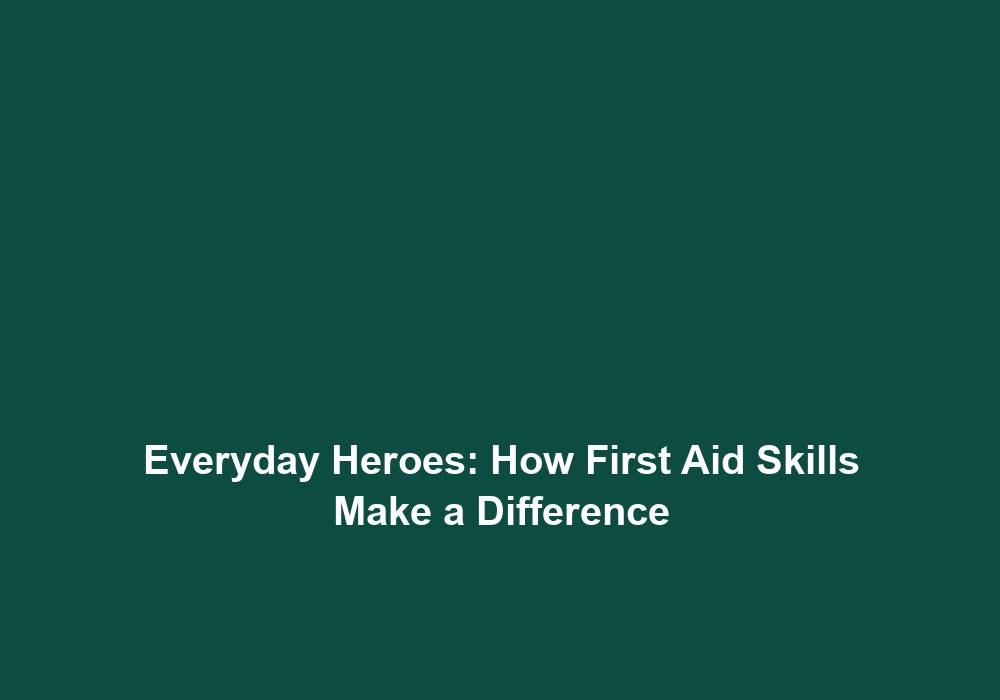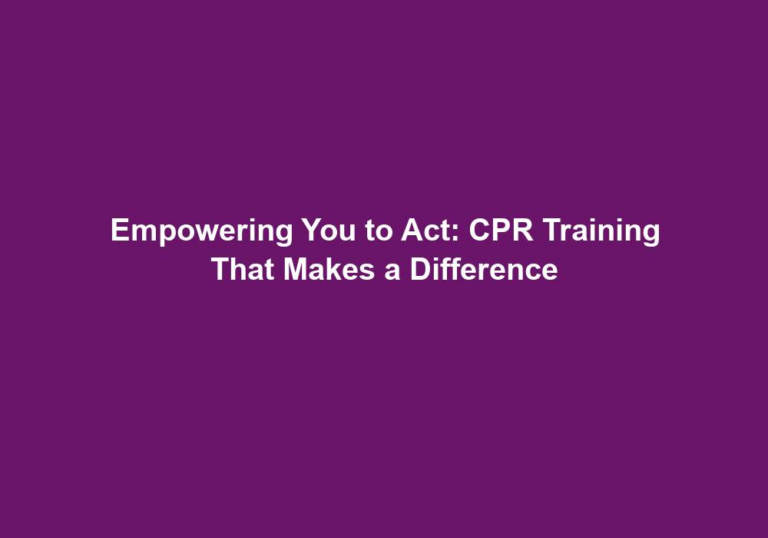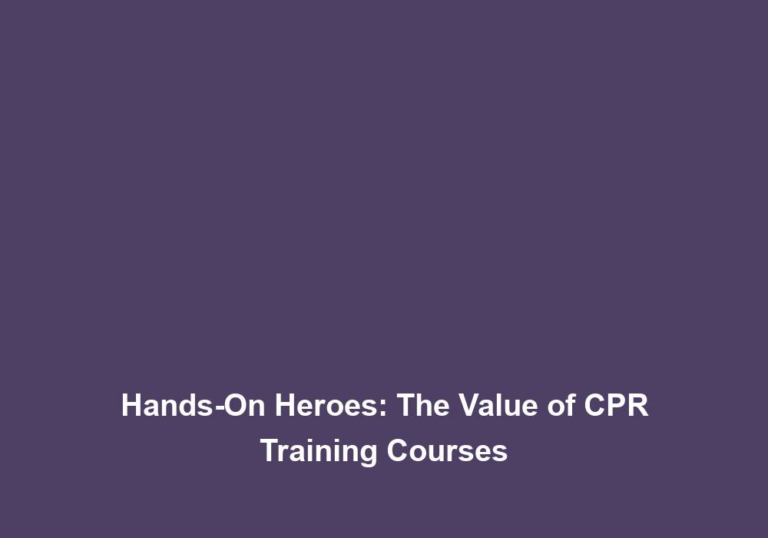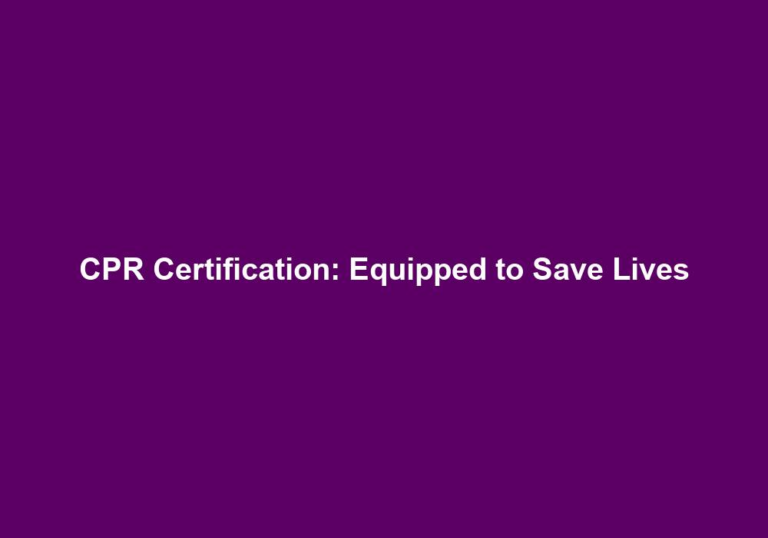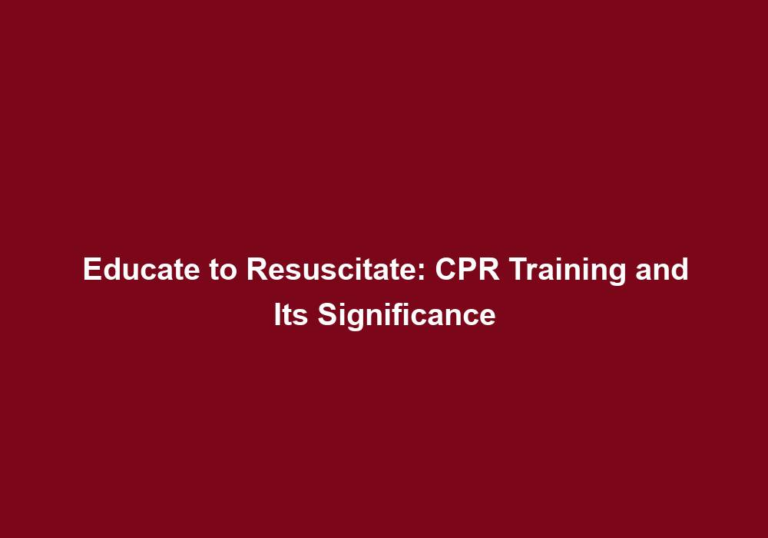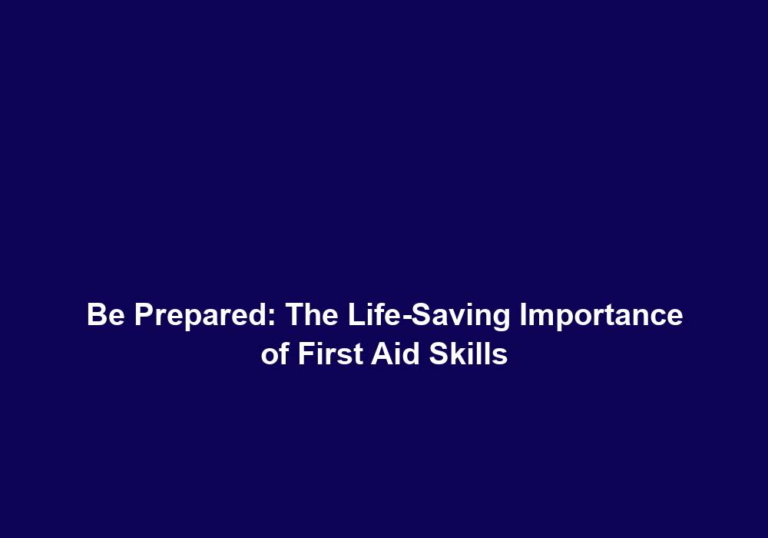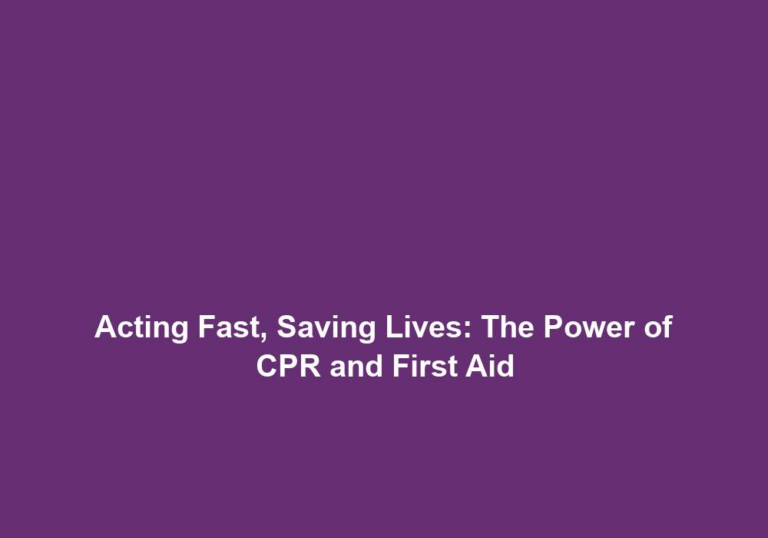Everyday Heroes: How First Aid Skills Make a Difference
First aid skills are more than just a set of techniques and procedures; they have the power to make a significant difference in emergency situations. Those who possess these skills become everyday heroes, capable of saving lives and providing immediate assistance when it matters most. In this article, we will explore the importance of first aid skills and how they can make a difference in various scenarios.
The Foundation of First Aid
Before delving into the ways first aid skills can make a difference, it is crucial to understand the foundation on which these skills are built. First aid is the initial medical assistance provided to an individual who has been injured or suddenly taken ill. It is designed to stabilize the person’s condition until professional medical help arrives.
First aid techniques are based on scientific evidence and best practices in emergency medical care. They are taught through certified training courses that cover a wide range of topics, including CPR, wound management, choking, and bone fractures. By attending these courses, individuals can gain the necessary knowledge and confidence to respond effectively in emergency situations.
Immediate Response
One of the most critical aspects of first aid is the ability to provide immediate response in emergency situations. When an accident or medical emergency occurs, every second counts. First aid skills empower individuals to take prompt action, ensuring that appropriate measures are taken to prevent the condition from worsening.
Immediate response involves assessing the situation and risks, ensuring personal safety, and quickly providing the necessary care. For example, in the case of someone experiencing a heart attack, performing CPR immediately can help maintain blood flow and oxygen to the vital organs until professional medical help arrives. By taking immediate action, first aid providers can significantly increase the chances of a positive outcome.
Saving Lives
First aid skills can literally save lives in situations where immediate medical attention is not readily available. Cardiopulmonary resuscitation (CPR) is a prime example of how first aid skills can make a life-or-death difference. By performing CPR, a person’s heart and breathing can be temporarily restored, giving them a fighting chance until professional help arrives.
In addition to CPR, first aid training covers other life-saving techniques such as the use of automated external defibrillators (AEDs) to restore normal heart rhythms in cases of cardiac arrest. By having individuals trained in these skills, communities can have a higher chance of survival in emergencies, especially in areas where medical help may be delayed.
Minimizing Further Injury
In addition to saving lives, first aid skills also help minimize further injury or complications. For instance, in cases of bleeding, applying direct pressure to the wound can help control the bleeding and prevent excessive blood loss. This simple yet effective first aid technique can significantly reduce the risk of shock and potential organ damage.
Furthermore, immobilizing fractures or dislocations can prevent further damage to surrounding tissues and nerves. By providing proper splinting and support, first aid providers can help minimize pain and prevent complications such as nerve injuries or impaired circulation.
Promoting Recovery
Providing immediate and appropriate first aid can promote faster recovery and better overall outcomes. By stabilizing the injured person’s condition and preventing further harm, first aid interventions pave the way for professional medical treatment. This, in turn, enhances the chances of a successful recovery and reduces the risk of long-term complications.
For example, in the case of a severe burn, immediate first aid involves cooling the burn with cold water to minimize tissue damage. This initial care can significantly reduce the extent of the burn and improve the chances of successful wound healing. Early intervention in any medical emergency can greatly impact the overall recovery process.
Everyday Scenarios Where First Aid Skills Matter
First aid skills are not only crucial during major accidents or emergencies but also in everyday situations. The following scenarios highlight how first aid skills make a difference:
1. Workplace Accidents
Accidents can happen anywhere, including the workplace. Having employees trained in first aid can be lifesaving in situations where immediate medical assistance is not immediately available. These trained individuals can provide initial care until professional help arrives, minimizing the impact of injuries and improving the chances of a full recovery.
In workplace accidents, first aid providers can assess and stabilize the injured person, control bleeding, and provide basic wound care. They can also help manage other common workplace injuries, such as burns, sprains, or eye injuries. By having trained individuals on-site, workplaces can create a safer environment for their employees.
2. Roadside Emergencies
Motor vehicle accidents are unfortunately common occurrences. First aid skills enable individuals to provide immediate assistance to injured parties until emergency medical services arrive. This can include actions such as stabilizing the injured person’s neck, controlling bleeding, or performing CPR if necessary.
In roadside emergencies, first aid providers play a crucial role in ensuring the safety and well-being of accident victims. They can help maintain the person’s airway, control bleeding, and provide comfort and reassurance until professional help arrives. Their actions can make a significant difference in preventing further injury and improving outcomes.
3. Sporting Events
Sports-related injuries, such as sprains, fractures, or concussions, are relatively common. Coaches, athletes, and volunteers with first aid skills can promptly respond to these situations, ensuring that injured individuals receive appropriate care right away. This reduces the risk of further damage and promotes a faster recovery process.
First aid providers at sporting events can assess and manage common sports injuries, such as sprained ankles, dislocated joints, or head injuries. They can apply appropriate first aid techniques, such as splinting, ice packs, or concussion protocols, to minimize pain and prevent complications. Their presence and immediate response can make a significant impact on the overall well-being of athletes.
4. Household Accidents
From minor burns to cuts and bruises, accidents can happen at home. Knowing basic first aid techniques equips individuals to respond effectively to these incidents. By providing immediate care, further injury can be minimized, and proper medical attention can be sought if necessary.
In household accidents, first aid skills can help individuals manage various injuries and illnesses. They can clean and dress wounds, administer basic pain relief, and recognize signs of more serious conditions that require medical attention. By having these skills, individuals can provide timely and appropriate care to family members or themselves in times of need.
Importance of First Aid Training
While the benefits of first aid skills are evident, it is essential to recognize the importance of proper training. Attending certified first aid training courses equips individuals with the knowledge and confidence to respond effectively in emergency situations. These courses cover a wide range of topics, including CPR, wound management, choking, and bone fractures, ensuring that individuals are well-prepared for various scenarios.
First aid training goes beyond just learning the techniques; it also emphasizes the importance of quick assessment, effective communication, and maintaining personal safety. By attending these courses, individuals can develop a comprehensive understanding of emergency care and gain the skills necessary to make a difference when it matters most.
Conclusion
Everyday heroes are not just those with capes; they are individuals armed with first aid skills. By possessing the ability to provide immediate response and essential medical care, they can make a significant difference in emergency situations. From saving lives to minimizing further injury and promoting recovery, first aid skills have a profound impact. Investing in proper first aid training can empower individuals to become these everyday heroes, making our communities safer and more resilient.

